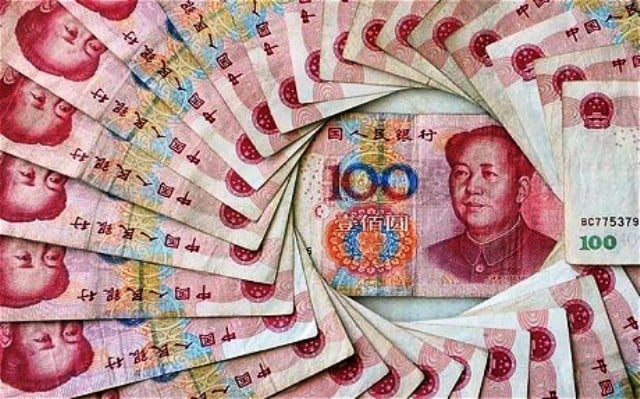China ‘years from convertible yuan’ despite reform
US claims currency still grossly undervalued and controlled.

China ‘years from convertible yuan’ despite reform
Beijing has recently taken small steps to relax controls on the currency and increase its use in global trade as it tries to reduce China’s exposure to the dollar and allow the yuan to take on a greater role worldwide.
In the latest move this month, authorities announced rules to allow foreign companies to use yuan raised overseas to invest in China, which analysts said was a positive step for increasing cross-border flows in the currency.
In August, the government also expanded a programme to allow Chinese exporters across the vast country to use the yuan to settle cross-border deals.
But the changes have been too slow for critics and analysts agree that China is at least 10 years away from having a freely traded and fully convertible currency whose value is set by the market - not the government.
“If the renminbi is to be anything but a fringe player globally, it will have to be convertible with very few, and ideally, no restrictions,” said Mark Williams, an analyst at London-based research house Capital Economics.
China has repeatedly pledged to relax its currency controls and in June 2010 - under international pressure - vowed to let the yuan trade more freely against the dollar, ending an effective peg to the greenback.
Since then the currency has strengthened about seven percent against the dollar - too little for US lawmakers who claim the yuan is undervalued by as much as 30 percent, giving Chinese exporters an unfair trade advantage.
The US Senate earlier this month approved a bill that would punish China for alleged currency manipulation while US Secretary of State Hillary Clinton has suggested an international coalition could force Beijing to raise the unit’s value.
But Beijing has defended its currency controls as necessary to protect its manufacturing sector, which employs millions of workers, and to prevent large capital inflows and outflows which could be damaging to the economy.
Last week, faced with falling demand for Chinese-made products, Premier Wen Jiabao vowed to maintain a “stable” exchange rate to protect exporters.
Chinese companies can also use the yuan to fund investments overseas while authorities have signed currency swap agreements with several countries and invited foreign institutions to participate in the interbank bond market.
But these were “constrained and artificial” measures and the yuan remained a long way from being freely traded, said Patrick Chovanec, an economics professor at Beijing’s Tsinghua University.
The central government has declared it aims to build Shanghai, which has long been China’s business heart, into an international financial centre by 2020 -- which analysts say would require the yuan to be unshackled.
But the eurozone crisis and downturn in the United States had convinced Chinese officials that maintaining strict currency controls was the right thing to do now and the 2020 deadline could be pushed back, they said.
Published in The Express Tribune, October 24th, 2011.



















COMMENTS
Comments are moderated and generally will be posted if they are on-topic and not abusive.
For more information, please see our Comments FAQ